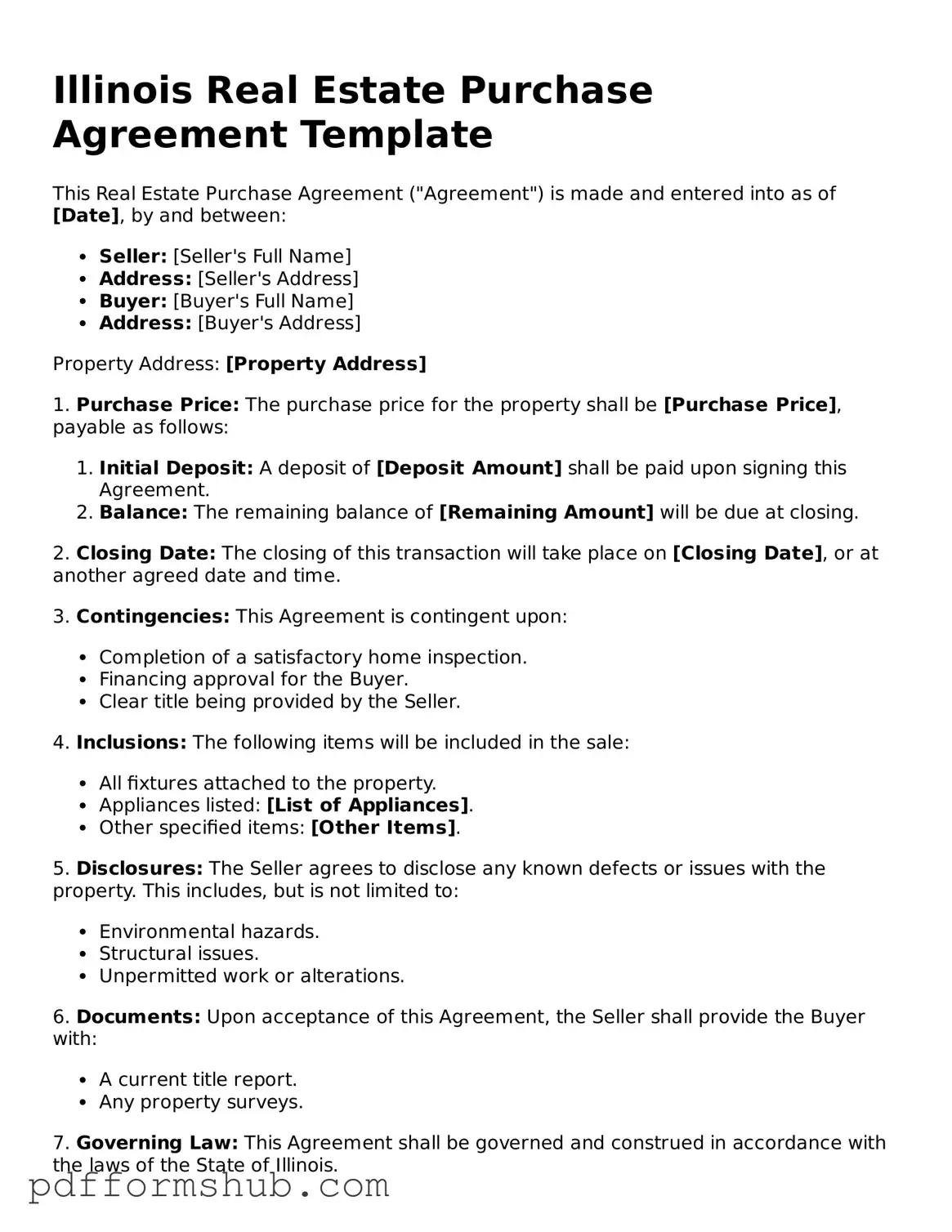Attorney-Verified Real Estate Purchase Agreement Form for Illinois State
The Illinois Real Estate Purchase Agreement form is a legally binding document that outlines the terms and conditions of a real estate transaction between a buyer and a seller. This form serves as a crucial tool in ensuring that both parties are clear on their rights and obligations throughout the buying process. Understanding this agreement can help facilitate a smoother transaction, so consider filling it out by clicking the button below.
Customize Form

Attorney-Verified Real Estate Purchase Agreement Form for Illinois State
Customize Form

Customize Form
or
Free PDF Form
Short deadline? Complete this form now
Complete Real Estate Purchase Agreement online without printing hassles.